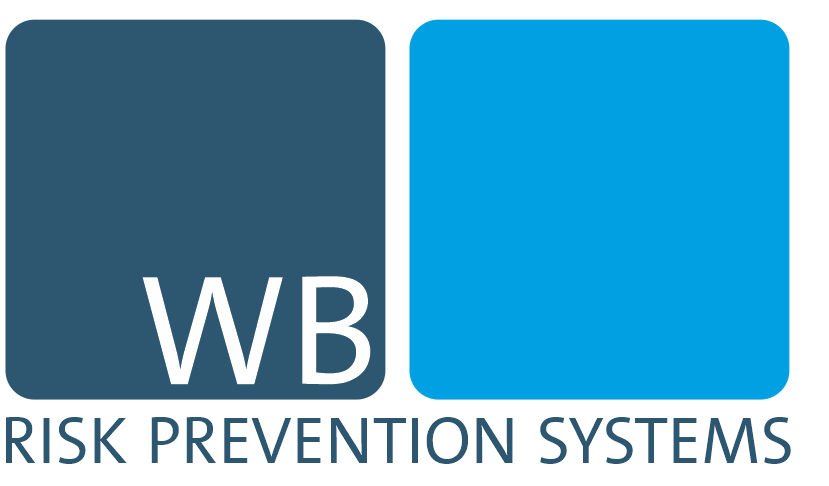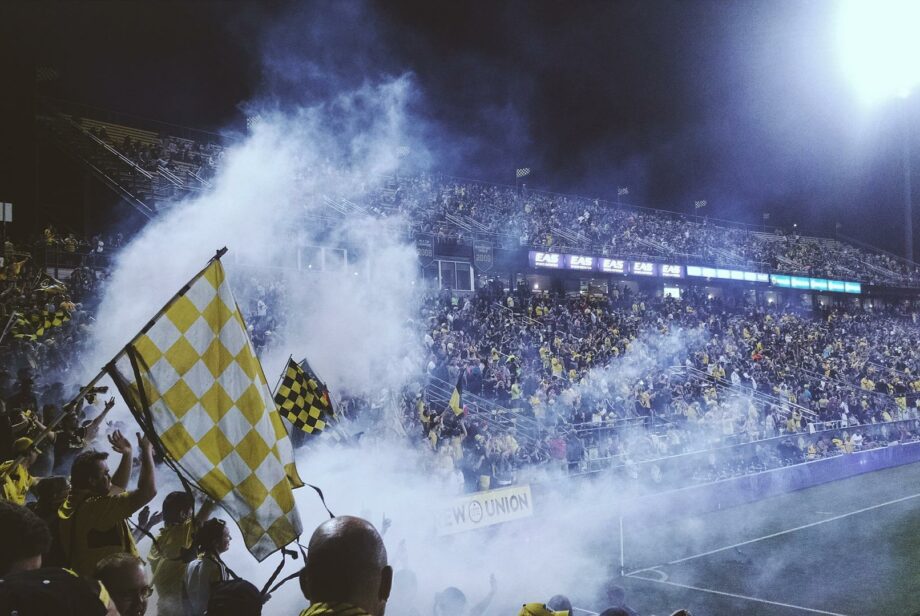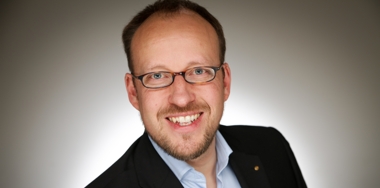Wie mögliche gesellschaftliche Spätfolgen der Corona-Pandemie bei der Planung künftiger Veranstaltungen berücksichtigt werden sollten.
Ein Kommentar von Dr. Johannes Wamser & Marcel Hagens.
Auch wenn Sars-Cov-2 weiterhin ein ernstzunehmender Krankheitserreger ist, der uns langfristig erhalten bleiben wird, kehrt dennoch Stück-für-Stück mehr Normalität in unseren Alltag zurück. Die Maskenpflicht wird an vielen Stellen aufgehoben ebenso wie Quarantäne- und Isolationsregeln gelockert werden.
Lockerungen gibt es dabei auch für Freizeitveranstaltungen. Konzerte und Festivals können wieder mit voller Zuschauerstärke stattfinden ebenso wie Sporthallen und Stadien vollständig ausgelastet werden können. Hinzu kommt der Frühling. Man kann wieder draußen etwas mit Freundinnen und Freunden unternehmen.
Da wirkte es wie ein Schock, als es bei dem Heimspiel des VfL Bochum gegen Borussia Mönchengladbach am 18.03.2022 zu einem Spielabbruch wegen eines Becherwurfs kam, bei dem ein Linienrichter eine Schädelprellung und ein Schleudertrauma erlitt. Der VfL Bochum reagierte auf den Vorfall mit dem Ausbau der Videoüberwachung, um entsprechende Täter:innen künftig besser identifizieren zu können. Zudem wurde eine Verschärfung von Sanktionen (wie z.B. Stadionverbote) kommuniziert und an die Eigenverantwortung sowie Zivilcourage der Fans appelliert.
Da es neben dem Becherwurf noch weitere Beobachtungen des Vereins sowie Hinweise zahlreicher Stadionbesucher:innen zu einer „aggressiveren Grundstimmung auf den Zuschauerrängen“ gab, stellten sich die Verantwortlichen des VfL Bochums die Frage: Liegt hier vielleicht eine größere Herausforderung vor, die über den konkreten Fall hinausgeht?
Ein Einzelfall in der Bundesliga?
Wohl kaum – immerhin war es in der laufenden Saison auch in anderen Stadien zu ähnlichen Vorfällen gekommen: Leverkusen, Bremen, Schalke, Bielefeld und Hamburg, nur um einige zu nennen. Zudem wurden Spannungen auch auf den Rängen zwischen den Besucher:innen und Anhänger:innen des gleichen Vereins beobachtet. Handelt es sich um fußballspezifische Phänomene? Und warum jetzt?
So kam es zu einem fachlichen Austausch zwischen dem VfL Bochum und WB Risk Prevention Systems, mit dem Ziel, Daten und Erfahrungen aus anderen Bereichen und anderen Regionen zusammenzutragen, um ein besseres Verständnis für die aktuellen Entwicklungen zu erlangen.
Analysiert wurden unterschiedliche Arten von Veranstaltungen:
- Sport: Fußball, Basketball, Handball, American Football
- Kultur: Konzerte und Festivals
- Allgemeine Freizeit: „Kneipenmeilen“, Altstädte und Partys
- Sowie unterschiedliche Regionen: Deutschland, Niederlande, Belgien, Österreich, Schweden, Australien, USA und UK
Es wurden Pressemitteilungen bzw. Infos auf Vereinsseiten, in Foren sowie Forschungsberichte recherchiert. Vor allem aber wurden mehrere qualitative Expertengespräche in Form vertraulicher Hintergrundgespräche mit Veranstaltern und beteiligten Dienstleistern (z.B. Security, Agenturen) in und außerhalb Deutschlands geführt.
Die Ergebnisse unserer Analyse
- Seit der Corona-Pandemie kommt es weltweit zu einer starken Zunahme von vergleichbaren Delikten bei Veranstaltungen aller Art bzw. überall dort, wo Menschen in Gruppen zusammenkommen. Es handelt sich also nicht um ein „Bochumer“ oder um eine „deutsches“ Phänomen. Nur um einige Beispiele von Fußballveranstaltungen aus Nachbarländern aufzuführen:
- 16.10.2021 Waregem: Ausschreitungen von Fans untereinander
- 17.10.2021 Mechelen: Ausschreitungen von Fans untereinander
- 19.10.2021 Genk: Ausschreitungen zwischen unterschiedlichen Fangruppen bei einem UEFA Youth League Spiel
- 19.10.2021 Brügge: Prügelattacken auf Gästefans aller Altersgruppen
- 30.10.2021 Maastricht: Spielabbruch wegen Schlägereien auf den Rängen
- 04.03.2022 Arnheim: Spielabbruch wegen Becherwurf
- 07.03.2022 Wien: Rassistische Ausschreitungen
- Ähnliche Vorfällen treten vermehrt auch bei anderen Sportveranstaltungen auf, wie z.B.
19.03.2022 Hasselt: Abbruch eines Boxturniers wegen prügelnder Fangruppe
- Selbstverständlich gab es entsprechende Ausschreitungen bereits vor Corona. Die betroffenen Vereine beklagen aber eine deutliche Zunahme der Quantität und Intensität. Für Verwunderung sorgt, dass es sich teilweise sogar um langjährige Vereinsmitglieder oder Dauerkarteninhaber:innen handeln würde, die bislang noch nie aufgefallen seien und sich zu „atypischen“ Aggressionen hinreißen ließen.
- Es handelt sich auch nicht um ein Phänomen, das nur auf Sportveranstaltungen beschränkt wäre (Beispiele: „Gewalt in der Düsseldorfer Altstadt“, „Gewalt gegen Rettungskräfte“, „Mehr Verletzte bei Musikfestival“, „wachsende Aggressivität gegen Ärzte“, „wachsende Gewalt innerhalb der Familien“). Forscher:innen aus Schweden, UK und Australien beschrieben jüngst zudem eine wachsende Anzahl von sexuellen Übergriffen auf Festivals.
-
Experten:innen kennen (leider) den Mechanismus wachsender zwischenmenschlicher Gewalt in Krisenzeiten. Die WHO wies bereits zu Beginn der Corona-Pandemie im Juni 2020 darauf hin, dass der Zusammenhang von Gewaltbereitschaft und Krisen „gut dokumentiert“ sei. Zahlreiche Kommentare von Fachärztinnen und Fachärzten für Psychiatrie und Psychotherapie, die dazu in den letzten beiden Jahren veröffentlich wurden, unterstreichen diesen Zusammenhang (so z.B. Dr. Andreas Hagemann, Ärztlicher Direktor der auf Psychosomatik spezialisierten Röher Parkklinik in Eschweiler bei Aachen).
Stark vereinfacht: Gesellschaftliche Isolation gepaart mit Zukunftsängsten, vermehrten Sorgen, Verunsicherungen und Alkoholkonsum führt dazu, dass die Zündschnur bei vielen Menschen deutlich kürzer geworden ist. Wut und Reizbarkeit sind typische Reaktion auf langanhaltende Ängste. Deswegen ist zu befürchten, dass die Anzahl an eskalierenden Konfliktsituationen weiter zunehmen wird.
- Tendenzen, die bereits vor Corona als zunehmend problematisch wahrgenommen wurden (z.B. wachsende Gewaltbereitschaft von Jugendlichen) scheinen sich durch Corona noch weiter verschärft zu haben
Was bedeutet das aus Sicht der Risikoprävention für künftige Veranstaltungen?
Es muss damit gerechnet werden, dass in absehbarer Zeit das Risiko von Ereignissen / Übergriffen / körperlichen Auseinandersetzungen bei Veranstaltungen aller Art deutlich höher liegt als vor Corona.
Davon wird nicht nur der Sport betroffen sein, sondern grundsätzlich jede Art des Zusammenkommens von größeren Personengruppen (Beispiel: Bei dem „Re-Start“ einer 90er Party in NRW kam es zu einer außergewöhnlich hohen Anzahl von Körperverletzungen, wobei sich die Aggressoren quer durch das gesamte Altersspektrum zogen. Der jüngste festgesetzte Besucher war 17, der älteste 57 Jahre alt).
Entsprechend müssen bestehende Sicherheitskonzepte angepasst werden.
Hierzu gehört auch, dass mögliche „Verstärker / Katalysatoren“ aufmerksam betrachtet werden sollten. Hiermit sind beispielsweise Situationen gemeint, bei denen es auf kleinem Raum zu hoher Frustration als Auslöser für Gewalt kommen kann (wie z.B. extreme Verzögerungen beim Einlass), Provokationen (z.B. durch andere Gruppierungen) sowie übermäßiger Konsum von Drogen und Alkohol.
Bei der Planung der Sicherheitskonzepte muss berücksichtigt werden, dass Corona auch zu Personalverwerfungen bei sämtlichen Dienstleistern rund um das Veranstaltungsgewerbe geführt hat. Eines von vielen Beispielen:
Da während der Corona-Pandemie kaum Großveranstaltungen stattfanden, hat die Security Branche zahlreiche (erfahrene) Mitarbeiter verloren. Konsequenz: Jüngere und unerfahrene Mitarbeiter:innen stehen nun gewaltbereiteren Besuchern und Besucherinnen gegenüber. In einem „Brandbrief“ der Konzertveranstaltungsbranche aus dem Februar 2022 wird darauf hingewiesen, dass aufgrund des Personalmangels zahlreiche Veranstaltungen sogar gänzlich abgesagt werden müssen. Verfasser waren Dr. Berend Koll (HKES GmbH, Deichbrand Festival), RA Martin Reitmaier (Argo Konzerte GmbH, Rock im Park Festival), Axel Schulz (Musikmanager, Konzertveranstalter).
Die russische Invasion in die Ukraine wird das Risiko von gewaltbereiten Auseinandersetzungen in Westeuropa ebenfalls weiter erhöhen, sei es, a) weil Zukunftsängste und Sorgen weiter zunehmen und daher emotionale Überreaktionen weiter wahrscheinlicher werden (siehe oben) oder b) weil entsprechende Künstler:innen / Spieler:innen / Zuschauende mit Anfeindungen zu rechnen haben oder c) weil Veranstaltungen als Ort politischer Kundgebungen besondere Bedeutung erlangen (Beispiel: Bei einem Basketball EuroLeague-Spiel in Litauen zwischen Žalgiris Kaunas und Roter Stern Belgrad kam es zu Unruhen, weil sich serbische Spieler weigerten, einen „Stop War“-Banner mitzutragen).
Was muss über die Veranstaltung hinaus mitgeplant werden?
Zu dem Thema „Anfeindungen“ gehört auch, dass Corona auch zu einer Zunahme von Desinformationskampagnen und Aufrufen zur Gewalt in digitalen Medien geführt hat. Die Gefahr, dass wissentlich und vorsätzlich oder unwissentlich falsche Fakten, manipulierte Informationen oder Gerüchte gestreut und weiterverbreitet werden, ist deutlich gewachsen. Selbst sogenannte „Deepfakes“ (Medienmanipulationen) nehmen deutlich zu.
Hinzu kommt eine wachsende Bereitschaft, durch „Besuche zu Hause“ (wie die sogenannte „Fackelmärsche“) Individuen und Personen sowie deren Familien zu drohen. Übertragen, beispielsweise auf den Fußball, muss damit gerechnet werden, dass Spieler:innen, die z.B. als Leistungsträger:in den Wechsel zu einem anderen Verein bekannt geben, oder die im entscheidenden Spiel einen Elfmeter verschießen o.ä., Opfer entsprechender persönlicher Anfeindungen und Besuche zu Hause werden könnten. Deshalb sollten Vereine, Manager:innen und Spieler:innen sensibilisiert werden.
Am wichtigsten scheint aber die Erkenntnis zu sein, dass es sich bei den derzeitigen Phänomenen eben nicht um „Einzelereignisse“ handelt, die sich auf bestimmte Arten von Veranstaltungen oder wenige Altersgruppen oder Menschen mit bestimmten Hintergründen beschränken ließen. Vielmehr handelt es sich um gesamtgesellschaftliche, transnationale Tendenzen.
Daher sollte dieses Thema neben der Ebene der operativen, konkreten veranstaltungsbezogenen Umsetzung (Vereine, Konzertveranstalter:innen, aber auch Fanclubs etc.) auch auf Verbands- und politischer Ebene thematisiert werden.
Die Gespräche mit dem VfL Bochum und weiteren Veranstaltern zur Analyse der aktuellen Lage hat Dr. Johannes Wamser geführt.






